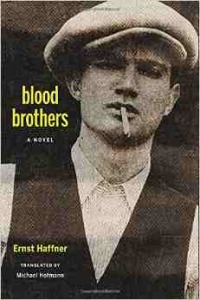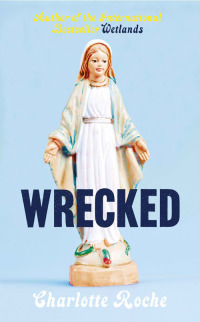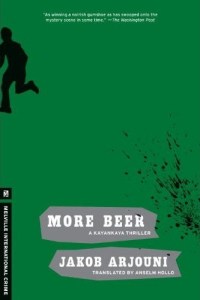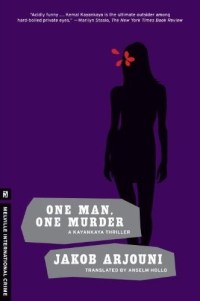Blood Brothers by Ernst Haffner
 Monday, March 2, 2015 at 9:35AM
Monday, March 2, 2015 at 9:35AM 
Published in Germany in 1932; published in translation by Other Press on March 3, 2015
The Blood Brothers are a group of boys (mostly in their teens) living rough and dispensing rough justice in Berlin in the early 1930s. They're all running from something -- from home, from an institution, from the law. They live in fear of apprehension, of being asked for their papers, of spending a night without food or shelter. Like hundreds of other boys in Berlin, they "prefer to starve at liberty to being half-fed in welfare."
Willi Kludas, older than the rest, jumps the wall and escapes an institution after beating one of the staff members. He takes a harrowing trip to Berlin, then scrounges for money so he can pay to sleep in a basement, buy cigarettes, or purchase the affection of a girl. His story is similar to Ludwig's, who is also arrested as a runaway. When Ludwig escapes, he is arrested for a crime he didn't commit. Of course, he runs again at his first opportunity, but not before spending time in various institutions. It is Ludwig who introduces Willi to the rest of the gang.
Willi and Ludwig are the primary characters but other gang members make regular appearances. Fred joins the gang after escaping from the room into which his father has locked him. Walter is frail but is deemed heroic after being shot in a dustup with a rival gang. Heinz can't hold his liquor. Fred cooks up most of the illegal schemes to keep the gang in money. Konrad and Jonny provide the gang's muscle. Ulli leads (more or less) an "affiliated" gang.
The novel's moral focus sharpens when the gang turns to picking pockets and stealing purses for survival. Not all gang members are comfortable with theft. Even the ones who steal tend to be decent young men who did not choose their lives, who commit crimes as a last resort, preferring to work when they can -- although, without papers, their work is limited to shoveling snow and mending shoes. But what can gang members do who disagree with the crimes the gang commits? The Blood Brothers take care of each other with a fierce loyalty that was missing in their own families. Refusing to participate would be an unforgivable measure of disloyalty. Is it worth leaving the gang in order to hold one's moral center, even if that means losing the protection and companionship that are essential to surviving on the street? Are the other means of survival even worse than stealing?
Blood Brothers conveys a strong sense of realism. Ernst Haffner draws a sharp contrast between the Alexanderplatz portrayed in the cinema, a place full of cheap thrills and champagne lounges where "aristocratic gangsters won't do a job except in tops and tails," and the reality of homeless drifters, desperate prostitutes, brutal pimps, brutal police, and the unemployed who depend on casual crime for food. Poverty bedevils youth and the elderly alike.
Blood Brothers doesn't quite achieve the dramatic impact that Haffner must have intended but it does generate sympathy for its unfortunate characters. Except for Willi and Ludwig, there is too little to differentiate the characters from each other. The novel does a better job of depicting the impact of poverty on groups of young men than it does of telling individual stories. The ending is a bit rushed and a tad preachy. The novel is nonetheless an effective condemnation of a system that it more interested in whether people have "papers" than jobs. It's also a testament to the human spirit -- the drive not just to survive but to live free -- and to the bonds of friendship forged by hardship.
RECOMMENDED


